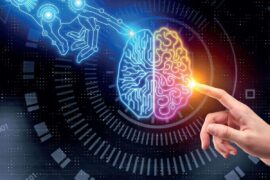One of the most crucial facets of any organisation is customer support. It has the power to create or break your income, consumer loyalty, and reputation. But how do you provide the best customer support possible? Should you rely on human agents or use artificial intelligence (AI) to automate some or all of the tasks?
In this blog post, we will compare AI and human support in terms of their advantages and disadvantages, and help you decide which one is best for your business.
What is AI Support?
AI support is the use of software programs that can perform tasks that normally require human intelligence, such as answering questions, providing solutions, and resolving issues. It can be delivered through various channels, such as chatbots, voice assistants, email, social media, and self-service portals.
AI support can be classified into two types: rule-based and machine learning-based.
- Rule-based AI support follows predefined rules and logic to handle customer queries. It can only respond to specific scenarios that are programmed in advance. For example, a rule-based chatbot can answer questions like “What is your return policy?” or “How can I track my order?” by locating the necessary data in a database.
- Machine learning-based AI support uses algorithms that learn from data and feedback to improve their performance over time. It can handle more complex and varied queries that are not anticipated by the developers. For example, a machine learning-based chatbot can understand natural language and context, and provide personalized and relevant responses based on the customer’s profile, history, and preferences.
What are the Benefits of AI Support?
AI support has many benefits for both businesses and customers, such as:
- Cost-effectiveness: AI support can reduce the operational costs of customer service by automating repetitive and mundane tasks, such as answering FAQs, booking appointments, updating information, etc. It can also scale up or down according to the demand, without requiring additional staff or infrastructure.
- Efficiency: AI support can provide faster and more accurate responses than human agents, especially for simple and common queries. It can also handle multiple customers at the same time, without compromising the quality of service.
- Availability: AI support can offer 24/7 service, regardless of time zones, holidays, or weekends. It can also handle peak periods and unexpected surges in traffic without any delays or errors.
- Consistency: AI support can provide consistent and standardized responses across different channels and platforms. It can also eliminate human errors and biases that may affect customer satisfaction.
- Customer satisfaction: AI support can improve customer satisfaction by providing quick and convenient solutions, reducing wait times and frustration, and enhancing customer engagement and loyalty.
What are the Challenges of AI Support?
AI support is not without its challenges, such as:
- Limitations: AI support cannot handle all types of customer queries, especially those that require human empathy, creativity, or judgment. It may also fail to understand ambiguous, sarcastic, or emotional language, or deal with angry or dissatisfied customers.
- Maintenance: AI support requires constant monitoring, testing, updating, and improvement to ensure its functionality, accuracy, and relevance. It may also need human intervention or supervision to handle complex or sensitive issues, or to provide feedback and guidance.
- Trust: AI support may face resistance or distrust from some customers who prefer human interaction or are concerned about privacy, security, or ethical issues. It may also encounter technical glitches or errors that may damage customer confidence and loyalty.
What is Human Support?
Human support is the use of human agents who interact with customers through various channels, such as phone calls, live chats, emails, social media, etc. It can provide personalized and empathetic service that can build rapport and trust with customers.
Human support can be classified into two types: in-house and outsourced.
- In-house human support involves hiring and training your own staff to handle customer queries. It gives you more control over the quality and consistency of service, as well as the ability to align it with your brand values and culture.
- Outsourced human support involves hiring a third-party company or agency to handle customer queries on your behalf. It can save you time and money on recruitment, training, infrastructure, etc., as well as give you access to a larger pool of talent and expertise.
What are the Benefits of Human Support?
Human support has many benefits for both businesses and customers, such as:
- Personalization: Human support can provide customized and tailored solutions that match the specific needs and preferences of each customer. It can also use emotional intelligence and social skills to connect with customers on a deeper level and make them feel valued and appreciated.
- Creativity: Human support can use creativity and innovation to solve problems that may not have a clear or straightforward answer. It can also use humor, storytelling, or other techniques to enhance customer experience and engagement.
- Empathy: Human support can use empathy and compassion to understand and relate to the feelings and emotions of customers, especially those who are facing difficulties, challenges, or complaints. It can also use positive language and tone to express sympathy, apology, or appreciation, and to diffuse tension or conflict.
- Trust: Human support can build trust and credibility with customers by demonstrating expertise, professionalism, and honesty. It can also use verbal and non-verbal cues, such as eye contact, gestures, or voice modulation, to convey sincerity and confidence.
What are the Challenges of Human Support?
Human support is not without its challenges, such as:
- Cost: Human support can be expensive and resource-intensive, as it involves hiring, training, paying, and retaining staff, as well as providing them with the necessary tools, equipment, and infrastructure. It may also incur additional costs due to turnover, absenteeism, or overtime.
- Efficiency: Human support can be slower and less accurate than AI support, especially for simple and routine queries. It may also be affected by human factors, such as fatigue, stress, boredom, or mood swings, that may impair performance or productivity.
- Availability: Human support may not be available at all times or in all locations, due to working hours, shifts, breaks, holidays, etc. It may also face capacity issues or bottlenecks during peak periods or unexpected events that may result in long wait times or poor service quality.
- Consistency: Human support may not provide consistent and standardized responses across different agents, channels, or platforms. It may also vary in quality and satisfaction depending on the skills, knowledge, personality, or attitude of each agent.
How to Choose Between AI and Human Support?
There is no one-size-fits-all answer to this question. The optimum option relies on a number of variables, including:
- Your business targets: What do you hope to accomplish with your customer service? Do you want to reduce costs, increase efficiency, improve satisfaction, or something else?
- Your customer needs: What are your customers looking for in your customer support? Do they want speed, convenience, accuracy, personalization, empathy, or something else?
- Your customer segments: Who are your customers? What are their demographics, behaviours, preferences, expectations, etc.?
- Your customer queries: What are the types of queries that your customers have? How simple or complex are they? How frequent or urgent are they?
- Your budget and resources: How much money and time can you invest in your customer support? How many staff and tools do you have or need?
Based on these factors, you can choose between three options:
- AI-only support: This option is suitable for businesses that have a large volume of simple and repetitive queries that can be easily automated and answered by AI. It can help you save costs and increase efficiency while providing fast and accurate service to your customers.
- Human-only support: This option is suitable for businesses that have a low volume of complex and sensitive queries that require human intelligence and empathy. It can help you provide personalized and empathetic service to your customers while building trust and loyalty.
- Hybrid support: This option is suitable for businesses that have a mix of simple and complex queries that can benefit from both AI and human support. It can help you leverage the strengths of both AI and human agents while compensating for their weaknesses. For example, you can use AI to handle FAQs and common issues while escalating more difficult or emotional cases to human agents.
Conclusion
AI and human support are not mutually exclusive. They can complement each other and work together to provide the best customer service possible.
The key is to understand your business goals, customer needs, customer segments, customer queries, budget, and resources. Then decide which solution best matches your needs.
If you want to learn about how to choose the best AI Chatbot for your customer service, read this blog.





